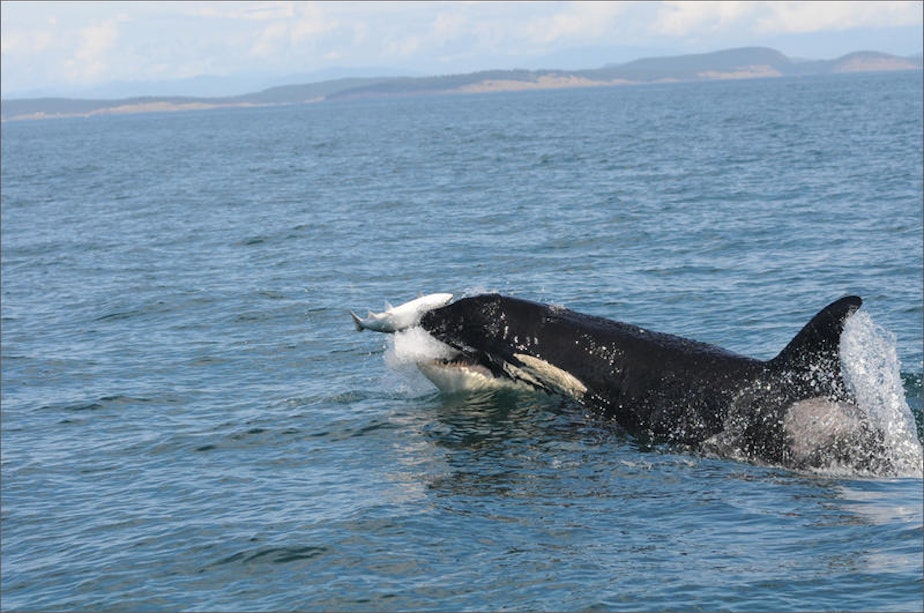Court halts Canadian tar sands pipeline, citing orca impacts

Canada's federal appeals court has halted construction on a pipeline that would have sent more oil tankers through Washington waters.
Tribes and environmentalists on both sides of the border have been fighting the expansion of the Trans Mountain pipeline, recently sold by Texas energy company Kinder Morgan to the Canadian government, for years.
The decision marks a major victory for the project's opponents.
Justice Eleanor Dawson said Canada's National Energy Board committed a critical error by defining the project to leave out all the extra oil tankers that would haul its oil to export markets. By doing so, Dawson said that the regulators failed to account for impacts on southern resident killer whales, which are protected under Canada's Species at Risk Act, similar to the U.S. Endangered Species Act, under which they are also protected.
"The operation of project-related vessels is likely to result in significant adverse effects upon both the southern resident killer whale and indigenous cultural uses of this endangered species," the ruling states.
"This is good news for the orcas," said activist Eddy Ury with Bellingham nonprofit group Resources for Sustainable Communities. "It means there won't be 30 more tar-sands tankers moving through their habitat."
The Canadian government also failed to "meaningfully engage" with the tribes, or First Nations as they're known in Canada, along the 700-mile pipeline route, the judge said.
The pipeline expansion would triple the current pipeline’s capacity, helping tar sands oil from Alberta reach global markets.
"We are reviewing the decision with the Government of Canada and are taking the appropriate time to assess next steps," Kinder Morgan president Ian Anderson said in a statement. "We remain committed to building this project in consideration of communities and the environment, with meaningful consultation with Indigenous Peoples and for the benefit of Canadians."
Now, the pipeline expansion is in legal limbo until the Canadian government addresses those problems.
Tribes and environmentalists called the decision a major victory.
"We were relieved, for one thing, that the courts recognized this project was a threat to our way of life and also a threat to the Salish Sea," Suquamish tribal chairman Leonard Forsman, of Suquamish, Washington, said.
Canada's Finance Minister Bill Morneau said the government inherited a flawed environmental process when it bought the pipeline from Texas oil company Kinder Morgan. The company's shareholders approved that sale just hours after the appeals court's decision was announced.
Morneau called the court's decision an important step in getting the pipeline project built in the right way.


